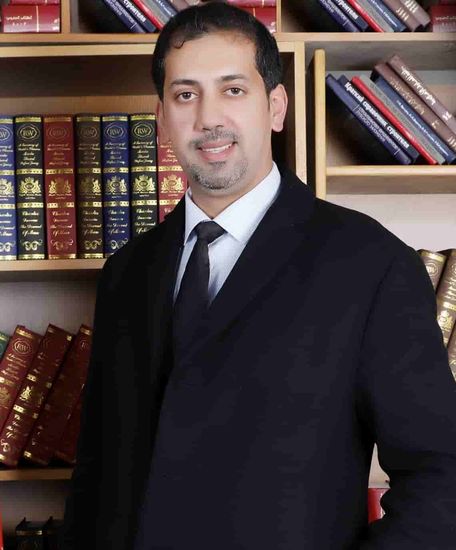Automated Smart, Sustainable Irrigation and Inspection System for Rural Farms in Jordan
Project Leader Statement:

Dr Ashraf Ali – Assistant Professor- Electrical Engineering Department -Hashemite University
Welcome to the Future of Jordanian Agriculture!
As the project leader of our Smart Agritech initiative (ASSIIS-Jo) , it gives me immense pleasure to extend a heartfelt welcome to you. Here, within the digital realm that encapsulates our passion for innovation and sustainable progress, we embark on a transformative journey reshaping the landscape of agriculture in Jordan.
This Project is one of the TSP project as part of Newton-Khalidi Fund provided and managed by The Royal Academy of Engineering RAEng and iRDF. it aims at building strong ties between Academia, I ndustry and Stakeholders in both Jordan and The United Kingdome.
Our vision for revolutionizing Jordan’s agriculture is not just a mere aspiration; it’s a collective commitment fueled by groundbreaking technology, unwavering dedication, and a profound respect for our land and its guardians.
At the core of our endeavor lies a convergence of ingenious minds, pioneering technologies, and a deep-rooted belief in the potential of smart agritech to redefine how we cultivate our fields, conserve resources, and uplift communities.
Through this platform, we invite you to witness the intersection of tradition and innovation, where age-old agricultural practices embrace the cutting edge of technology. Explore with us as we unravel the immense potential of IoT, AI, and sustainable practices in cultivating a future where bountiful harvests coexist harmoniously with environmental stewardship.
I invite you to immerse yourself in the stories of resilience, innovation, and empowerment shared by our farmers, entrepreneurs, and industry leaders. Together, let’s not just witness but actively participate in this agricultural revolution that promises a brighter, more sustainable tomorrow for Jordan and beyond.
Join us as we sow the seeds of change, nurture innovation, and harvest a future where smart agritech not only transforms fields but cultivates prosperity for generations to come.
Partners
1. Hashemite University
Role: Hashemite University, being an educational institution, contributed to the project in various ways:
- Research and Development: Conducting research to enhance the understanding and application of LoRaWAN technology in agriculture.
- Expertise and Knowledge Sharing: Providing academic expertise in agriculture, technology, and IoT to guide project development and strategies.
- Student Involvement: Engaging students in the project for practical learning experiences and hands-on involvement in innovative agricultural technology.
- ICCAA research Lab: dedicating the needed space that will host the project software and hardware outcomes, the Internet of Things research lab started as an initiative at the begining of the project by Dr Ashraf Ali in which HU contribuated as in-kind contribuation is part of the equipments and the remaining part (Sensors, monitoring system, gateways, all project developed hardware) are funded directly by the project budget and implemented in ICCAA lab.
- SMART Garden: the smart garden space is located just outside ICCAA research lab and will host all the outdoor sensors, irrigation infrastructure, pumps, solonids, ambient weather station….etc) all funded by the project budget
- First LoRa operator License for Academic Instituation: as aprt of the project activities, the lead team has applied through Hashemite University to get the license to operate LoRa devices in the research ICCAA lab. the request has been approved by the jordanian Telecommunciation Regulatory Commission (TRC) on September 2023. License application fees and operation fees has been covered by the project budget.
2. University of South Wales
Role: Similar to Hashemite University, the University of South Wales brings academic expertise and resources to the project:
- Research Collaboration: Collaborating on research initiatives related to LoRaWAN technology, agricultural practices, and IoT integration.
- Technology Development: Contributing expertise in technology development and implementation for agricultural applications.
- Educational Support: Offering educational support, potentially through joint programs or workshops, to disseminate knowledge about LoRaWAN in agriculture.
3. Elentec
Role: As a technology company, Elentec provide specialized services and resources:
- Meetings and Workshop: sharing theri knowledge and experties in the feild of water processing and releated sensors
- Product Integration: providing consultation integration advice of their technology within the project’s framework and agricultural systems.
4. Volt Automation
Role: Volt Automation, specializing in automation, could contribute in the following ways:
- System Integration: Integrating LoRaWAN technology with existing agricultural automation systems for streamlined data collection and management.
- Automation Solutions: Developing and implementing automated processes that leverage LoRaWAN data for optimizing agricultural operations.
- Efficiency Enhancement: Focusing on enhancing operational efficiency through the synergy of automation and LoRaWAN technology.
5. TechCare (al-Fardthakh Tech and Data Science)
Role: TechCare, technology service provider, offer the following contributions:
- Software Development: Creating software solutions for data analysis, visualization, and management of information collected through LoRaWAN devices.
- System Maintenance: Providing ongoing support, maintenance, and updates to ensure the smooth functioning of LoRaWAN-based systems.
- Customization and Adaptation: Tailoring software solutions to meet specific needs and requirements within the agricultural context.
6. National Agriculture Research Centre
Role: Being a research center focused on agriculture, its role could encompass:
- Field Expertise: Contributing extensive agricultural knowledge, insights, and best practices for effective implementation of LoRaWAN technology.
- Field Trials and Testing: Conducting field trials to validate the effectiveness and practicality of Soil rests and structure in the smart garden site.
- Data Validation: Providing validation and verification of data collected through LoRaWAN devices in real-world agricultural scenarios.
Each partner brings unique expertise and resources to the table, fostering a collaborative environment aimed at advancing the integration of LoRaWAN technology into the agricultural sector. Their combined efforts and specialized contributions are instrumental in achieving the project’s objectives and driving innovation in agricultural practices.